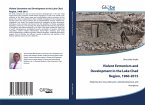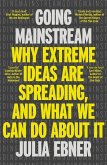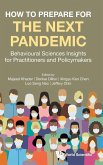How can we use psychology and the behavioural sciences to aid law enforcement to better identify violent extremists? What can we learn from past attacks to ensure that our society is more prepared? How can societies deal with tension after these attacks? Violent extremists are evolving, constantly honing their strategies to out-manuever the 'good guys'. Faced with the quandary, challenges, and responsibilities of ensuring the safety of the society, practitioners and policymakers have to take decisive steps to respond and mitigate the impact of an attack. However, the daunting task of countering violent extremism is still plagued by the lack of basic understanding of the phenomenon. This book, Learning from Violent Extremist Attacks: Behavioural Sciences Insights for Practitioners and Policymakers, attempts to fill a gap in the extant literature by offering a behavioural sciences approach to integrate our understanding of the threat of violent extremism, with knowledge drawn from diverse fields, such as psychology, sociology, history, political science, technology, and communications to identify the lessons learned and provide scientifically defensible interventions and approaches for both the practitioners and policymakers.
Hinweis: Dieser Artikel kann nur an eine deutsche Lieferadresse ausgeliefert werden.
Hinweis: Dieser Artikel kann nur an eine deutsche Lieferadresse ausgeliefert werden.








